#A Guide to Optimal Digestive Health
Explore tagged Tumblr posts
Text
Nurturing Gut Harmony: A Guide to Optimal Digestive Health

In the intricate symphony of our bodies, the digestive system plays a vital role in maintaining overall well-being. Achieving optimal digestive health involves more than just occasional dietary adjustments; it requires a holistic approach that considers lifestyle, nutrition, and mindful habits.
Understanding the Gut Ecosystem:
At the core of digestive health is the gut microbiome, a complex community of trillions of microorganisms residing in the digestive tract. This ecosystem influences nutrient absorption, immune function, and even mental health. A balanced microbiome contributes to efficient digestion and protection against harmful pathogens.
The Impact of Nutrition:
What we eat directly affects our digestive system. A diet rich in fiber, whole grains, and diverse fruits and vegetables supports a healthy gut. These foods nourish beneficial gut bacteria, aiding in the breakdown of food and absorption of essential nutrients. On the flip side, excessive consumption of processed foods, sugar, and saturated fats can disrupt the delicate balance of the microbiome.
Hydration and Digestion:
Adequate water intake is often underestimated in its role in digestion. Water helps break down food, enabling the body to absorb nutrients efficiently. It also prevents constipation, a common digestive issue. Staying hydrated supports the mucosal lining of the intestines, promoting smoother digestion.
Mindful Eating Practices:
In our fast-paced lives, we often overlook the importance of mindful eating. Chew your food thoroughly; this not only aids in digestion but also sends signals to the brain that you're satisfied, preventing overeating. Additionally, avoiding distractions during meals can enhance the body's natural digestive processes.
Proactive Lifestyle Choices:
Regular physical activity promotes healthy digestion by reducing the risk of constipation and supporting overall gut health. Exercise stimulates the muscles of the digestive tract, helping move food through the system more efficiently.
Conclusion:
Prioritizing digestive health is an investment in your overall well-being. By understanding the intricate balance of the gut ecosystem and adopting mindful lifestyle choices, you pave the way for a harmonious relationship with your digestive system, promoting vitality and long-term health.
1 note
·
View note
Text
Low Carb Diet vs Carnivore Diet: The Ultimate Comparative Guide for Better Health

Welcome to our ultimate guide on the low carb diet vs carnivore diet. In this article, we dive deep into the world of dietary trends that have taken the nutrition world by storm. Whether you are interested in shedding a few pounds, optimizing your health, or simply curious about these eating styles, you’ve come to the right place. We’re going to explore everything from the origins and core principles to the practical, everyday tips you can use if you decide to try one of these diets.
Adopting a healthy lifestyle means staying informed and making choices that suit your body and goals. Through this comprehensive article, you will understand the low carb diet vs carnivore diet debate from all angles—what works, what doesn’t, and which approach may be best for you. We’ll break down the science, share expert opinions, and even include real-life testimonials to help you navigate your journey.
In our conversational yet well-researched style, we’ll provide you with actionable advice, actionable bullet points, and relatable examples to ensure the information is engaging and easily digestible. Let’s start with the basics and build a robust understanding of these two popular diets.
Don’t wait—click now to dive into the ultimate low carb diet vs carnivore diet showdown!
#diet#dieting#diets#weightloss#weightlossjourney#fitness#foodie#food#healthylifestyle#wellness#lowcarb#ketodiet#ketolife#lowcarbdiet#lchf#ketogenic#ketosis#carnivore#carnivorediet#meat#meatheals#carnivorelife#animalbased#meatlover#zerocarb
7 notes
·
View notes
Text
How Ginger Can Enhance Liver Health: An In-Depth Guide for a Healthier Life
In the realm of holistic health, the liver is often overlooked, despite its critical functions in the body. This organ, which performs more than 500 vital processes daily, is the powerhouse behind detoxification, digestion, and metabolism. For those seeking to maintain optimal liver health, nature has provided a potent ally: ginger. This humble root, with its warm, spicy flavor and aromatic…
10 notes
·
View notes
Text
youtube
The Silent Symptoms of LEAKY GUT: Watch Out for These 7 WARNING SIGNS Visit Dr. Stengler’s Website: https://ift.tt/7vwFJGH Feeling tired after meals, dealing with brain fog, or sudden food sensitivities? These could be warning signs of leaky gut—a condition that affects your whole body. In this video, you'll discover the 7 most common signs your gut may be compromised. From skin issues to joint pain, your symptoms might all trace back to your digestive system. 🔔𝐃𝐨𝐧'𝐭 𝐟𝐨𝐫𝐠𝐞𝐭 𝐭𝐨 𝐬𝐮𝐛𝐬𝐜𝐫𝐢𝐛𝐞 𝐭𝐨 𝐦𝐲 𝐜𝐡𝐚𝐧𝐧𝐞𝐥 𝐟𝐨𝐫 𝐦𝐨𝐫𝐞 𝐮𝐩𝐝𝐚𝐭𝐞𝐬. https://www.youtube.com/@MarkStengler/?sub_confirmation=1 🔗 Stay Connected With Me. Facebook: https://ift.tt/wWQvZ9K Instagram: https://ift.tt/1Ywe9hA Website: http://drstengler.com/ ============================= 🎬Suggested videos for you: 👉 https://youtu.be/OFIDLvYQA74 👉 https://youtu.be/m4r04zIasbQ 👉 https://youtu.be/_RgeZ1XRzJ8 👉 https://youtu.be/JP0JJ-drPog 👉 https://youtu.be/JLgwCRtFT2Y 👉 https://youtu.be/HsV-mkxC274 👉 https://youtu.be/yTHvZu301Q0 👉 https://youtu.be/CH8dei4SbNY ================================= ✅ About Dr. Mark Stengler. Welcome to my natural health channel, Dr. Mark Stengler! I’m Dr. Mark, a Naturopathic Medical Doctor and best-selling author with nearly 30 years of experience in integrative medicine. Here, I share expert insights on natural health, nutrition, and the power of integrative medicine—blending conventional and holistic approaches to achieve optimal wellness. Honored as the 2021 Doctor of the Decade by the International Association of Top Professionals and a former advisor for Yale's Complementary Medicine Outcomes Research Project, I will guide you on your health journey with trusted advice and proven natural therapies. Let’s empower your health naturally through integrative medicine! 🔔 Discover the power of integrative medicine! Subscribe for expert advice, healing therapies, and tips on natural health, nutrition, and optimal wellness! https://www.youtube.com/@MarkStengler/?sub_confirmation=1 ================================= #LeakyGut #GutHealth #GutHealing #DigestiveHealth via Dr. Mark Stengler https://www.youtube.com/channel/UClP9encWJ3JfAxUITHV0-yw May 14, 2025 at 12:00AM
#naturalremedies#holistichealth#naturalsupplements#naturaltreatment#wellness#integrativehealth#integrativemedicine#healtheducation#Youtube
2 notes
·
View notes
Text
Top Healthcare SEO Trends on LinkedIn You Need to Watch in 2025

In the digital era, healthcare marketing is transforming faster than ever. With more professionals turning to online platforms to connect, learn, and grow, LinkedIn has become a vital space for healthcare marketers, providers, and organizations to build brand authority. Among the most important strategies gaining traction on this platform is Healthcare SEO—and understanding the Healthcare SEO trends on LinkedIn can give you a significant competitive edge.
Whether you’re a healthcare marketer, medical practice owner, or health tech entrepreneur, aligning your SEO efforts with LinkedIn’s professional ecosystem is now essential for digital success. Let’s explore the top trends shaping Healthcare SEO on LinkedIn in 2025.
1. Thought Leadership Content Is Driving SEO Authority
One of the most impactful Healthcare SEO trends on LinkedIn is the surge in thought leadership. Healthcare professionals and marketers are increasingly using the platform to share long-form content, industry insights, and expert commentary.
LinkedIn articles and posts that answer common medical or health-tech questions, share new research, or offer actionable tips are often indexed by Google. These posts not only improve visibility on LinkedIn but also enhance domain authority when they link back to your website.
Pro tip: Create SEO-optimized content for your website, then repurpose it into digestible LinkedIn articles. Include internal links to your site, and use keywords like “healthcare marketing,” “patient acquisition,” and “digital health solutions.”
2. Keyword-Optimized Profiles Are Ranking on Google
Another major trend is the optimization of personal and business LinkedIn profiles for SEO. A well-structured profile with strategically placed keywords like "Healthcare SEO strategist" or "digital health marketing expert" can help you appear in Google searches—even outside the LinkedIn platform.
LinkedIn profiles and business pages are treated as high-authority domains by search engines. This means that optimizing your “About” section, headlines, and descriptions with relevant healthcare SEO keywords can give you better online visibility.
Bonus: Include backlinks to your main website in your contact information or featured content.
3. Video Content is Boosting Engagement and SEO Signals
Video continues to dominate content marketing across all platforms, and LinkedIn is no exception. In the healthcare sector, short videos that explain treatments, answer FAQs, or showcase patient success stories are performing incredibly well.
From an SEO perspective, these videos increase time-on-page and engagement—two signals that search engines love. When embedded on your website or linked from LinkedIn, these videos can help enhance your site's performance and visibility.
Creating short, keyword-rich video descriptions with terms like "Healthcare SEO trends on LinkedIn" can also improve discoverability both on the platform and on search engines.
4. Data-Driven Insights Are Guiding Content Strategy
More healthcare marketers are using LinkedIn analytics to inform their SEO content strategy. By reviewing post engagement, impressions, and follower demographics, marketers can identify which topics resonate most with their audience.
This trend is shaping the way healthcare organizations plan their blog content, landing pages, and downloadable resources. If posts about "telehealth solutions" or "AI in healthcare" perform well on LinkedIn, those insights can fuel SEO blog topics that rank on Google.
Use case: A healthcare tech company sees high engagement on a post about “AI in diagnostics.” They then write a long-form blog post optimized with that keyword and link to it from a follow-up LinkedIn article—boosting both engagement and search rankings.
5. Cross-Channel SEO Strategies Are Gaining Momentum
SEO is no longer isolated to just websites. One of the newer Healthcare SEO trends on LinkedIn is the integration of cross-channel strategies, where LinkedIn is used to amplify SEO-focused content hosted elsewhere.
Healthcare organizations are now sharing blog snippets, infographics, webinars, and eBooks on LinkedIn—each one linking back to an SEO-optimized landing page. These backlinks, shares, and engagements contribute to improved search rankings and greater brand reach.
Smart move: Create downloadable guides or case studies on your website, and promote them on LinkedIn with a compelling CTA and an SEO-friendly title.
6. Employee Advocacy Is Amplifying SEO Reach
LinkedIn is built around people—and that’s exactly where this trend comes in. Healthcare brands are encouraging employees to share SEO-rich content from the company page on their personal profiles.
When doctors, specialists, marketers, and admin staff share valuable insights or company updates, the content reaches a broader audience and earns more trust. Google and LinkedIn both recognize these signals as authority builders.
Tip: Provide employees with pre-written captions, hashtags, and links to use when sharing content, and ensure the main post includes "Healthcare SEO trends on LinkedIn" to maximize keyword relevance.
youtube
Final Thoughts
The intersection of Healthcare SEO trends on LinkedIn represents a powerful shift in how healthcare brands attract and engage patients and partners. From content optimization and profile enhancements to video marketing and employee advocacy, these trends highlight the growing importance of integrating SEO into your LinkedIn strategy.
#Healthcare SEO trends on LinkedIn#LinkedIn SEO for healthcare#Top healthcare SEO trends on LinkedIn#SEO for healthcare providers#Healthcare SEO trends#Healthcare SEO#Youtube
2 notes
·
View notes
Photo

🌿 **Embrace Optimal Health: Your Daily Wellness Guide** 🌿 In the pursuit of well-being, small, consistent changes can lead to transformative effects on your body and mind. Here are some gentle reminders to integrate into your daily life: - **Morning Ritual**: Start your day with a glass of warm lemon water. This simple habit supports digestion and detoxification. - **Nature Connection**: Spend at least 15 minutes outdoors. Fresh air and natural light enhance mood and concentration. - **Mindful Movement**: Incorporate gentle exercises like yoga or tai chi. They help improve flexibility, reduce stress, and boost energy levels. - **Nourishing Foods**: Fill your plate with colorful fruits and vegetables. Each color represents unique nutrients essential for health. - **Breath Awareness**: Every few hours, take a moment to breathe deeply. This elevates your energy and calms your mind. - **Sleep Hygiene**: Prioritize a consistent sleep schedule. Aim for 7-9 hours of quality sleep to rejuvenate your body. ✨ **Inspiration Corner**: "Let food be thy medicine, and medicine be thy food." – Hippocrates. Embrace these tips and let the watercolor palette of health guide your journey toward optimal wellness! 🌈💧 #Wellness #NaturalHealth #OptimalHealth #Mindfulness #Biohacking
#wellness#health#mindfulness#nutrition#nature#yoga#balance#detox#sleep#energy#movement#vibrance#relaxation#breathe#selfcare#habits#transformation#inspiration#fruits#vegetables
2 notes
·
View notes
Text
Probiotics for Kittens: A Complete Guide to Supporting Your Kitten’s Health
At Ipromea, we understand the importance of a healthy gut for your kitten's development. Our probiotics for kittens are specially formulated to support your kitten’s digestive health, boost their immune system, and promote overall well-being. With our carefully selected strains of probiotics, we ensure your kitten receives the right balance of beneficial bacteria to help maintain optimal gut flora from a young age. Whether your kitten is dealing with digestive issues or you want to prevent future health problems, our probiotics are a trusted solution for nurturing their health. For more information or to purchase, call us at 07 3518 8158 or email [email protected]. Let us help you give your kitten the best start in life with our premium probiotic supplements.
2 notes
·
View notes
Text
Uncovering Hidden Health Risks: The Impact of Common Food Sensitivities
Food sensitivities are often misunderstood and underestimated, yet they can profoundly affect your health and overall quality of life. Unlike food allergies, which provoke immediate and severe reactions, food sensitivities tend to cause subtle, delayed symptoms that are challenging to diagnose. This guide explores common food sensitivities, their symptoms, and their potential effects on your health and weight loss journey.
Common Symptoms of Food Sensitivities
Food sensitivities can manifest in a variety of ways, affecting different systems in the body. Recognizing these symptoms is essential for addressing and managing the underlying issues.
Some common symptoms of food sensitivities include:
Digestive Issues: Chronic bloating, gas, diarrhea, or constipation can be linked to undiagnosed food sensitivities.
Skin Problems: Conditions such as eczema, acne, or hives may result from an inflammatory response to certain foods.
Fatigue and Mental Fog: Persistent tiredness, brain fog, and difficulty concentrating are often associated with food sensitivities.
Mood Swings and Irritability: Sensitivities can impact mental health, leading to anxiety, irritability, or depression.
By identifying and eliminating trigger foods, you can significantly alleviate these symptoms and improve your overall well-being.
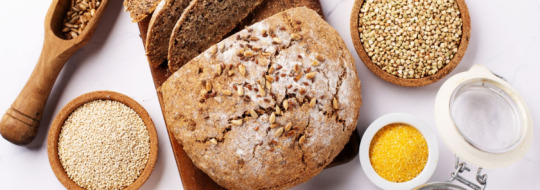
How Food Sensitivities Affect Weight Loss
If you’re struggling with weight loss despite following a disciplined diet and exercise routine, food sensitivities may be the culprit. Hidden reactions to certain foods can interfere with your body’s natural processes, creating hurdles for weight management.
Inflammation and Weight Gain
One of the primary ways that how food sensitivities affect weight loss is by triggering inflammation. When the immune system reacts to problematic foods, it initiates a cascade of inflammatory responses, leading to water retention, slowed metabolism, and fat storage.
Hormonal Imbalance
Chronic inflammation from food sensitivities can also disrupt the production of hormones such as insulin and cortisol. These hormonal changes make it harder to burn fat and control cravings, further complicating your weight loss efforts.
By addressing food sensitivities through elimination diets or testing, you can optimize your weight loss strategy and enhance your metabolic health.
How Inflammation Impacts Weight Loss
Inflammation is a natural response to injury or infection, but when it becomes chronic due to food sensitivities, it can have detrimental effects on your health. Understanding how inflammation impacts weight loss is critical for overcoming this barrier.
Energy Drain and Reduced Activity Levels
Chronic inflammation saps your energy, making it harder to stay active or commit to regular workouts. The lack of physical activity further slows down your metabolism, creating a cycle of weight gain.
Insulin Resistance and Fat Storage
Inflammation contributes to insulin resistance, where cells become less responsive to insulin, leading to elevated blood sugar levels and increased fat storage. This makes losing weight an uphill battle, even with a calorie-controlled diet.
Reducing inflammation by addressing food sensitivities can help reset your metabolism and improve your body’s ability to shed excess weight effectively.
Common Food Sensitivities to Watch Out For
Certain foods are more likely to cause sensitivities than others. Here are some of the most common culprits:
Dairy: Lactose and casein, common components in dairy products, are frequent triggers.
Gluten: Found in wheat, rye, and barley, gluten is a leading cause of digestive and inflammatory issues.
Soy Products: Often hidden in processed foods, soy can cause hormonal disturbances in sensitive individuals.
Eggs: Both egg whites and yolks can provoke sensitivities, leading to digestive or skin problems.
Tree Nuts: Nut sensitivities can lead to digestive discomfort, headaches, or skin reactions.
Eliminating these foods from your diet temporarily can help you identify the ones causing issues.
Steps to Manage Food Sensitivities for Better Health
1. Elimination Diet
Begin by cutting out suspected trigger foods for several weeks, then reintroduce them one by one to identify which ones cause symptoms.
2. Professional Testing
Food sensitivity tests, such as IgG or IgA blood tests, can provide precise insights into your body’s responses to various foods.
3. Anti-Inflammatory Diet
Adopt a diet rich in anti-inflammatory foods like leafy greens, fatty fish, and berries to combat chronic inflammation and its effects.
By understanding and managing food sensitivities, you can unlock better health, overcome weight loss challenges, and restore balance to your body. Recognize the signs, take action, and experience the transformative benefits of addressing these hidden health hurdles.
Read More Useful information on zealthy
2 notes
·
View notes
Text
Basic Health Guide
• Basic Health Information:
your Essential Guide to Well- Being :Health is undoubtedly the greatest asset one can possess, forming the foundation of a fulfilling and meaningful life. It goes beyond merely avoiding illness; true health embodies the harmony of the body, mind, and soul. In today’s fast-paced and often stressful world, where lifestyle diseases and mental health issues are on the rise, understanding the basics of health has never been more important. This guide explores the essence of health, its core principles, and practical steps to achieve and maintain it.
• What is Health?
Health is far more than the absence of disease. According to the World Health Organization (WHO), health is defined as a “state of complete physical, mental, and social well-being.” This implies that a truly healthy individual is one who enjoys a balanced state of physical fitness, mental tranquility, and social harmony.

https://youtu.be/CDY0EYk1FdQ?si=tA0WMCTqDz_-Tvxq
For instance, someone who exercises daily but struggles with chronic stress may not be considered healthy in the broader sense. True health requires equal attention to physical vitality, emotional resilience, and a supportive social environment.
• Basic Principles of Health
To live a vibrant and balanced life, it is essential to adhere to certain universal health principles. Let’s delve into these with practical examples:
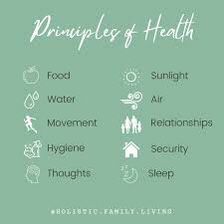
https://youtube.com/shorts/fruRm91r1Ik?si=SVm89P7vNLkOOKRy
• Balanced Diet:
A well-balanced diet provides the fuel your body needs to function optimally. It should include essential nutrients such as proteins (for muscle repair), carbohydrates (for energy), healthy fats (for brain health), and vitamins and minerals (to strengthen immunity).
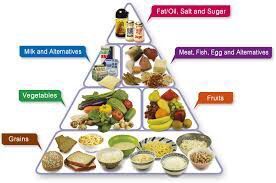
For example, a balanced breakfast might include scrambled eggs for protein, whole-grain toast for carbohydrates, an avocado slice for healthy fats, and a glass of orange juice for Vitamin C. Avoiding processed foods and excessive sugar further enhances overall health.
https://youtu.be/NqV1Ig4_nfI?si=iy3ci69fvio_VNqt
• Regular Exercise:
Physical activity is a cornerstone of good health, benefiting not only the body but also the mind. Engaging in at least 30 minutes of exercise daily—whether it's brisk walking, running, swimming, or yoga—helps improve cardiovascular health, boost mood, and reduce stress.
For instance, taking a 20-minute walk after dinner can aid digestion and calm the mind, while practicing yoga can help alleviate anxiety and improve flexibility.
https://youtu.be/qTHVnGA5rzU?si=9WzIbPN1S27ZWuwU
• Adequate Sleep:
Sleep is the body’s natural repair mechanism. Adults should aim for 7-8 hours of restful sleep each night. Poor sleep habits can lead to fatigue, irritability, and even chronic conditions such as hypertension.

Imagine the difference between starting your day after a good night’s sleep versus one spent tossing and turning. Proper rest not only keeps you energized but also sharpens focus and memory.
https://youtu.be/cjlhbYiynq4?si=2BPn5snxSh8HycNO
• Water Intake:
Staying hydrated is vital for maintaining bodily functions, from regulating temperature to aiding digestion and nutrient absorption. Drinking 8-10 glasses of water daily is recommended, though needs may vary based on activity levels and climate.

For example, on hot summer days or after an intense workout, increasing water intake is crucial to replenish lost fluids and prevent dehydration.
https://youtube.com/shorts/dw1mdzdprfY?si=q2HCDoyZYNVviLNR
• Mental Peace:
Mental well-being is equally important as physical health. Chronic stress, if unchecked, can manifest as headaches, high blood pressure, or even depression. Practices such as mindfulness meditation, engaging in hobbies, or spending quality time with loved ones can significantly reduce stress levels.
For instance, setting aside 15 minutes daily for meditation can help clear the mind, while nurturing relationships through meaningful conversations fosters emotional stability.
• Preventing Diseases:
Prevention is always better than cure, and taking proactive steps can protect you from many common diseases. Here are some essential preventive measures:
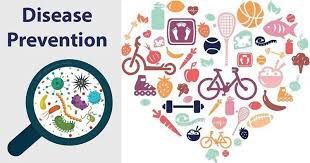
1.Washing Hands:Regularly washing your hands with soap can prevent the spread of infectious diseases such as colds, flu, and COVID-19. For example, washing hands before meals and after visiting public places is a simple yet effective habit.
2.Vaccination: Staying up-to-date with vaccinations can shield you from serious illnesses like measles, influenza, and hepatitis. For instance, flu shots during the winter season can significantly reduce the risk of infection.
3.Sun Exposure: Moderate exposure to sunlight, especially in the morning, is a natural way to boost Vitamin D levels, which strengthens bones and improves immunity. A 15-minute walk in the early sunlight can make a huge difference.
• Health Care:
Routine health check-ups and early diagnosis are vital for addressing potential health issues before they escalate. Visiting a doctor regularly, even when you feel fine, helps monitor blood pressure, sugar levels, and cholesterol.
For example, someone with a family history of diabetes should undergo periodic blood sugar tests to catch early signs and take preventive measures like dietary adjustments or increased physical activity.
Additionally, recognizing symptoms such as persistent fatigue, unexplained weight loss, or chronic pain and seeking timely medical attention can prevent serious complications.
• Conclusion:
Health is the cornerstone of happiness and success. A healthy body and mind enable you to pursue your goals, maintain relationships, and lead a life full of vitality and purpose. By adopting simple habits like eating a balanced diet, staying active, prioritizing sleep, and practicing mindfulness, you can significantly improve your quality of life. Remember, your health is your most valuable investment—nurture it every day to enjoy a long, fulfilling life.
2 notes
·
View notes
Text
Are You Using the Right Reptile Accessories? A Habitat Check Guide

Creating a healthy, comfortable habitat is essential to your reptile’s well-being. Whether you're a first-time owner or a seasoned reptile keeper, ensuring your enclosure has the right reptile accessories is not just about aesthetics—it’s about supporting your pet's health, behavior, and natural instincts.
In this habitat check guide, we’ll walk you through the must-have accessories for reptiles, explain their functions, and help you evaluate whether your current setup is truly optimal.
Why Reptile Accessories Matter
Reptiles are cold-blooded animals that rely on external sources to regulate their body temperature, humidity, and activity. Unlike dogs or cats, they need a controlled environment that mimics their natural habitat. This is where high-quality reptile accessories come in—they are not optional, they are essential.
Accessories influence:
Thermoregulation
Hydration
Security and hiding behavior
Activity and enrichment
Feeding and digestion
Habitat Check: Essential Accessories for Reptiles
Let’s go step-by-step and assess what your reptile habitat needs and whether your current setup ticks all the boxes.
1. Heating and Lighting Equipment
Proper lighting and temperature gradients are non-negotiable.
Check:
Do you have both a basking lamp and a UVB light (if required by the species)?
Are you using a reliable thermostat?
These are core reptile supplies to keep your pet warm, active, and able to metabolize nutrients like calcium properly.
2. Thermometers and Hygrometers
Monitoring is key to maintenance.
Check:
Do you have at least two thermometers—one for the warm side and one for the cool side?
Is a hygrometer present to track humidity?
Precision tools are often overlooked, but they’re some of the most important accessories for reptiles.
3. Hides and Shelters
Your reptile needs a safe space to feel secure.
Check:
Is there a hide on both the warm and cool ends of the enclosure?
Is the hide size appropriate—not too big or too tight?
A stressed reptile is more prone to illness. Proper hiding spaces are a must-have reptile accessory.
4. Substrate (Bedding Material)
Different species require different substrates for comfort, humidity retention, and hygiene.
Check:
Are you using a species-appropriate substrate?
Do you clean or replace it regularly?
Avoid cedar or pine—these can be toxic. Instead, opt for safe Reptile Supplies like coconut fiber, cypress mulch, or reptile carpet.
5. Water Bowls and Misting Systems
Hydration supports shedding, digestion, and overall health.
Check:
Is clean, fresh water always available?
Are you misting or using a fogger for species that require high humidity?
These reptile accessories ensure your pet stays hydrated and thrives in its environment.
6. Climbing Branches, Rocks, and Enrichment Tools
Physical and mental stimulation matter more than people think.
Check:
Are there things to climb, explore, and interact with?
Are your decorations safe and stable?
Enrichment isn’t just for mammals. Including dynamic accessories for reptiles like logs, platforms, and tunnels enhances quality of life.
Maintenance Tip: Clean and Replace Regularly
Even the best accessories won’t help if they’re dirty or broken.
Pro Tip: Inspect your reptile supplies weekly for wear, mold, or buildup. Replace water bowls and substrates frequently to avoid contamination.
Where to Find the Best Reptile Accessories
Not all accessories are made equal. Look for reputable brands and trusted pet supply retailers. Online platforms like Kwik Pets offer a wide range of reptile accessories and the best Reptile Supplies curated for safety and quality.
Final Habitat Checklist
Heat lamp
UVB lighting
Digital thermometer (x2)
Hygrometer
Warm-side hide
Cool-side hide
Safe substrate
Water bowl or misting system
Enrichment accessories
If you’re missing more than one or two of these, it's time to upgrade your setup.
Final Thoughts
Reptile care begins with the right environment. By choosing the right reptile accessories, performing regular checks, and making informed purchases, you’re giving your scaly friend the best chance to live a long, happy life.
FAQs
Q1: How often should I replace reptile accessories?
A: Replace accessories when they show signs of wear, mold, or damage. Substrates may need replacing every 1–4 weeks, depending on the species and cleanliness habits.
Q2: Can I use household items as reptile accessories?
A: Some household items may be used (e.g., cleaned cardboard boxes for hides), but ensure they’re non-toxic, smooth-edged, and species-safe. Avoid anything painted, chemically treated, or sharp.
Q3: What are the most essential reptile accessories for beginners?
A: Start with heat and UVB lighting, thermometers, hides, and safe substrate. These are the foundational Reptile Supplies that support your reptile’s core needs.
Q4: Are all reptile accessories universal?
A: No. Turtles, lizards, snakes, and geckos all have different needs. Always choose accessories for reptiles based on the specific species you’re caring for.
Q5: Where can I buy trusted reptile accessories online?
A: Reputable stores like Kwik Pets provide reliable, vet-approved Reptile Supplies for every species and budget.
1 note
·
View note
Text
Is Functional Medicine the Right Approach for You?
Is Functional Medicine the Right Approach for You?
Functional medicine is a personalized approach to healthcare that focuses on identifying and addressing the root causes1 of illness. Unlike traditional medicine, which often treats symptoms with medications, functional medicine takes a more comprehensive view of the body, considering the interconnectedness of various systems and the impact of environmental factors, genetics, and lifestyle on overall health.
When to Consider Functional Medicine
If you're struggling with chronic health conditions that haven't responded well to traditional treatments, functional medicine may be a viable option. Here are some common scenarios where functional medicine can be particularly beneficial:
Chronic Illnesses: If you're dealing with conditions like autoimmune diseases, digestive disorders, hormonal imbalances, or chronic fatigue syndrome, functional medicine can help identify and address the underlying factors contributing to these issues.
Complex Health Issues: If you have multiple health concerns that seem unrelated, functional medicine can help uncover the underlying connections and develop a comprehensive treatment plan.
Preventive Healthcare: If you're proactive about your health and want to prevent future illnesses, functional medicine can help identify potential risk factors and develop strategies to optimize your well-being.
Dissatisfaction with Traditional Medicine: If you've tried traditional treatments without success or are seeking a more holistic approach to healthcare, functional medicine may be a good fit.
How to Find a Qualified Functional Medicine Practitioner
When seeking a Best Holistic Doctor In Charlotte Nc to guide you on your functional medicine journey, it's essential to find a qualified and experienced practitioner. Here are some tips to help you find the right fit:
Look for Board Certification: Look for practitioners who are board-certified in functional medicine or have completed advanced training in this field.
Check Credentials: Verify the practitioner's credentials and experience, including their education and training.
Read Reviews and Testimonials: Research the practitioner's reputation by reading online reviews and testimonials from past patients.
Schedule a Consultation: Schedule a consultation to discuss your health concerns and determine if functional medicine is the right approach for you.
What to Expect from a Functional Medicine Consultation
A functional medicine consultation typically involves a comprehensive assessment of your health history, lifestyle, and genetic factors. Your practitioner may also recommend laboratory tests to identify underlying imbalances or deficiencies.
Based on the information gathered, your practitioner will develop a personalized treatment plan that may include:
Dietary Changes: Modifying your diet to support optimal health and address specific nutritional deficiencies.
Lifestyle Modifications: Implementing lifestyle changes such as regular exercise, stress management techniques, and adequate sleep.
Supplements: Using targeted supplements to address specific nutrient deficiencies or imbalances.
Medications: In some cases, medications may be used in conjunction with other therapies.
Is Functional Medicine Right for You?
Functional medicine offers a personalized and holistic approach to healthcare that can be beneficial for many people. If you're seeking a more comprehensive and effective approach to managing your health, consider consulting with a qualified best holistic doctor In Charlotte Nc to explore the possibilities of functional medicine.
3 notes
·
View notes
Text
Astrology and Health: What the Stars Say About Your Wellbeing
Introduction
Astrology offers insight into various aspects of life, from career and relationships to personal growth and health. While modern medicine emphasizes physical, mental, and emotional well-being, astrology brings an added dimension by highlighting cosmic influences on individual health. The position of the planets and the unique layout of each person’s birth chart can reveal underlying health tendencies and even point toward the best wellness practices. Understanding your astrological chart can therefore provide a holistic view of your well-being, integrating the mind, body, and spirit.
Also read - Exploring the Intriguing Connection: Numerology and Astrolog
Astrological Influences on Health: In astrology, each of the twelve zodiac signs is associated with different parts of the body. For instance, Aries rules the head, which may suggest a predisposition to migraines or headaches. Taurus governs the throat and neck area, while Gemini is linked to the shoulders, arms, and lungs. Each sign not only represents specific health areas but also speaks to unique personality traits that influence lifestyle choices impacting health. A fiery Aries may tend toward active, even risky, behavior that can lead to injuries, while a more grounded and sensual Taurus might have health issues stemming from indulgent eating habits.
Moreover, the ruling planets of each zodiac sign further influence health. Mars, the ruler of Aries, symbolizes physical energy and vitality, suggesting that Aries individuals may benefit from active, vigorous exercise. Venus, ruling Taurus and Libra, promotes balance and beauty, often guiding these individuals toward self-care routines. Similarly, the Moon’s influence on Cancer points to a sensitive digestive system, and these individuals may need to manage stress to maintain digestive health.
The Astrological Houses and Health: Astrologers often look to the sixth house in a natal chart to understand health matters, as it is traditionally associated with health, wellness, and daily routines. Any planets present in this house can offer clues about health strengths or vulnerabilities. For instance, a person with Saturn in their sixth house may have chronic or persistent health challenges, often resolved by disciplined routines and long-term commitment to wellness.
The first house, known as the ascendant or rising sign, also plays a crucial role in health. This house represents the physical body and general appearance. For example, a person with Leo rising might have a strong constitution and good vitality, influenced by the Sun’s warmth and energy, while a Pisces ascendant may be more sensitive and benefit from spiritual or therapeutic health practices.
Chat here: Chat with astrologer online
Practical Tips for Each Element: To optimize health, each elemental grouping (fire, earth, air, water) benefits from particular wellness routines:
Fire Signs (Aries, Leo, Sagittarius): Need high-energy activities like cardio workouts to release energy and maintain balance.
Earth Signs (Taurus, Virgo, Capricorn): Benefit from grounding practices such as nature walks, yoga, or even gardening to connect with the earth’s steady energy.
Air Signs (Gemini, Libra, Aquarius): Thrive with mentally stimulating activities like meditation and socializing, which helps them manage stress.
Water Signs (Cancer, Scorpio, Pisces): Benefit from water-based exercises or calming practices like journaling or spending time near water to nurture their emotions.
Conclusion
Astrology provides a unique lens through which we can view our health, offering guidance that speaks to our physical, emotional, and spiritual wellness. By exploring the influence of zodiac signs, planetary rulers, and astrological houses, we gain deeper insight into personal health needs and potential challenges. While astrology is not a replacement for medical advice, it can serve as a complementary tool for understanding our intrinsic health patterns and building a wellness routine aligned with our unique cosmic blueprint. Embracing this knowledge helps us live in harmony with the universe and supports a balanced, healthy life.
Have any questions? Speak with an astrologer: Download the App Now
2 notes
·
View notes
Text
A Guide to Prebiotic-Rich Foods for IBS Sufferers
Living with Irritable Bowel Syndrome (IBS) can be challenging, as symptoms like bloating, gas, and irregular bowel movements can impact daily life. One approach to managing these symptoms is through diet, particularly by focusing on gut health. Prebiotics, which are plant-based fibers that feed beneficial gut bacteria, can play a role in supporting digestion and enhancing gut health for those with IBS. In this guide, we'll explore some of the best prebiotic-rich foods that are suitable for IBS sufferers and how to incorporate them into your diet for optimal gut health.
Understanding Prebiotics and Their Role in IBS
Prebiotics are fibers that the human body does not digest. Instead, they travel to the colon, where they nourish beneficial bacteria in the gut. These good bacteria are essential for maintaining a balanced gut microbiome, supporting digestion, enhancing immunity, and reducing inflammation. For IBS sufferers, prebiotics can help improve gut health by promoting the growth of beneficial bacteria, which can aid in reducing symptoms.
However, it’s important to introduce prebiotics gradually if you have IBS, as increasing fiber too quickly can cause discomfort. It's best to start with small amounts and observe how your body responds.
Best Prebiotic-Rich Foods for IBS Sufferers
While many foods contain prebiotic fibers, not all of them may be suitable for individuals with IBS. Here are some gentle, prebiotic-rich foods that may be better tolerated by IBS sufferers:
Bananas
Bananas are a well-tolerated prebiotic food for many IBS sufferers. They contain resistant starch, a type of fiber that feeds beneficial bacteria in the gut. Bananas are easy to digest and can help regulate bowel movements, making them a great addition to your diet.
Oats
Oats are rich in beta-glucans, a type of soluble fiber with prebiotic properties. They can help soothe the gut lining and promote regular bowel movements. Oatmeal, oat-based cereals, or even oat milk are simple ways to add this gut-friendly food to your diet.
Blueberries
Blueberries are packed with antioxidants, vitamins, and prebiotic fibers that nourish beneficial bacteria in the gut. They are gentle on the digestive system and can be added to smoothies, yogurt, or eaten as a snack.
Carrots
Carrots are a low-FODMAP vegetable that can be well-tolerated by many IBS sufferers. They contain prebiotic fibers that support the gut microbiome without causing excessive gas or bloating. Enjoy carrots steamed, roasted, or raw as part of a balanced meal.
Potatoes (Cooled)
When potatoes are cooked and then cooled, they form resistant starch, a prebiotic fiber that benefits gut health. Cooled potatoes can be added to salads or served as a side dish. Make sure to incorporate them in moderation to see how your body responds.
Pumpkin Seeds
Pumpkin seeds are not only high in prebiotic fibers but also provide healthy fats and protein. They are a great topping for salads, oatmeal, or yogurt and can support gut health and digestion.
How to Incorporate Prebiotic Foods into Your Diet
If you're living with IBS and want to include more prebiotic-rich foods in your diet, here are some easy ways to get started:
Start with Small Portions
When adding prebiotic foods to your diet, start with small portions to avoid overwhelming your digestive system. Gradually increase the amount based on your tolerance level.
Combine with Soluble Fiber
Pairing prebiotic foods with soluble fiber can help soothe digestion. Soluble fiber is found in foods like oats, chia seeds, and apples and can help form a gel-like substance in the gut, which supports smooth digestion and bowel movements.
Mix Prebiotic Foods into Meals and Snacks
Add prebiotic-rich foods to your meals and snacks in creative ways. For example, top your oatmeal with bananas and blueberries for a gut-friendly breakfast, or enjoy carrot sticks with hummus as a nutritious snack.
Stay Hydrated
Drinking plenty of water throughout the day is important for digestion and can support the effectiveness of prebiotic fibers. Hydration is key to keeping things moving in the digestive system and reducing discomfort.
Tips for Managing IBS with Prebiotics
While prebiotics can support gut health, it's important to make adjustments based on your individual needs. Here are some additional tips for managing IBS while incorporating prebiotic foods:
Monitor Your Symptoms
Pay attention to how your body responds to different prebiotic foods. Keep a food diary to track your meals and symptoms, and adjust your diet based on what works best for you.
Pair with Probiotics
Probiotics are live bacteria that add to the gut microbiome, and they can work synergistically with prebiotics to support gut health. Consider including fermented foods like yogurt, kefir, or sauerkraut in your diet to enhance the benefits of prebiotics.
Choose Low-FODMAP Options
Some prebiotic foods can be high in FODMAPs (fermentable sugars that can trigger IBS symptoms). Choosing low-FODMAP prebiotic options like oats, bananas, and carrots can help support gut health without causing discomfort.
Seek Guidance from a Healthcare Professional
If you’re unsure about which prebiotic foods to incorporate into your diet or how to manage your IBS symptoms, consult with a healthcare professional or a registered dietitian who specializes in gut health.
Prebiotic Recipes for IBS Sufferers
Here are a couple of simple and tasty ways to incorporate prebiotic-rich foods into your meals:
Banana Oatmeal Breakfast Bowl
Prepare a warm bowl of oatmeal and top it with sliced bananas, blueberries, and a sprinkle of pumpkin seeds. This breakfast bowl is packed with prebiotics and offers a gentle start to your day.
Roasted Carrot and Potato Salad
Roast carrots and potatoes in olive oil and season with herbs. Once cooled, add them to a fresh salad with leafy greens and a light vinaigrette. This simple salad provides prebiotic fibers and can be enjoyed as a side dish or a light meal.
Prebiotics play a valuable role in supporting gut health, particularly for those living with IBS. By focusing on gentle, prebiotic-rich foods like bananas, oats, blueberries, and carrots, IBS sufferers can nourish their gut microbiome and improve digestion. Remember to start slowly, combine prebiotics with other gut-friendly foods, and seek guidance from a healthcare professional if needed. A balanced gut can make a significant difference in managing IBS and enhancing overall well-being.
#prebiotic foods#prebiotic supplements#prebiotic dietary fiber#prebiotic supplements for gut health#prebiotic cookies#Tata NQ
2 notes
·
View notes
Text
Decoding the Dog Bowl: A Comprehensive Guide to Canine Cuisine
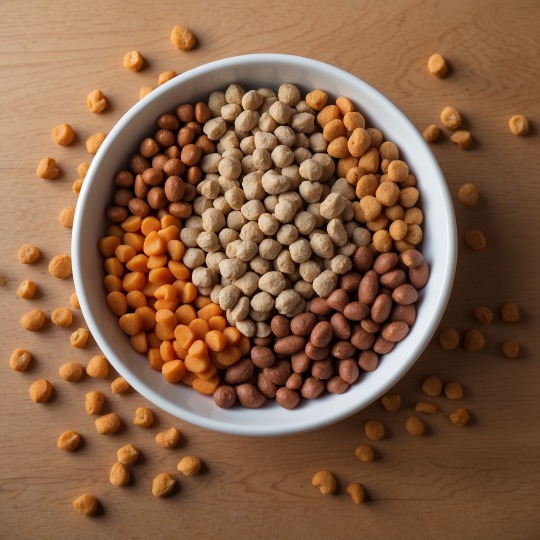
For our beloved canine companions, mealtime is more than just sustenance; it's a celebration, a moment of pure, unadulterated joy. But what goes into that bowl brimming with kibble or glistening with wet food?
As dog owners, navigating the world of dog food can feel like deciphering an ancient language. Fear not, fellow pawsome pet parents! This comprehensive guide will equip you with the knowledge to make informed decisions about your furry friend's fuel.
Fueling Fido: Understanding a Dog's Nutritional Needs
Unlike their feline counterparts, dogs are not obligate carnivores. They are omnivores, meaning their digestive systems can thrive on a combination of animal and plant-based proteins, carbohydrates, and fats. However, their dietary needs differ significantly from our own. Here's a breakdown of the essential nutrients for a healthy canine diet:
Protein: The building blocks of a dog's body, protein is crucial for muscle development, repair, and overall health. Animal-based proteins like chicken, beef, or fish are generally considered more bioavailable for dogs, meaning their bodies can absorb them more efficiently.
Fats: Fats provide energy and support healthy skin and coat. However, the type and amount of fat are important. Omega-3 and omega-6 fatty acids are essential for heart and brain health, while excessive saturated fats can lead to obesity and other health issues.
Carbohydrates: Carbohydrates provide readily available energy for your dog's active lifestyle. Look for complex carbohydrates like whole grains, which offer sustained energy compared to simple carbohydrates like white flour, which can cause blood sugar spikes.
Fiber: Fiber plays a vital role in digestion and gut health. A balanced diet should include moderate amounts of fiber from sources like vegetables and whole grains.
Vitamins and Minerals: Just like humans, dogs require a variety of vitamins and minerals to maintain optimal health. These micronutrients support healthy vision, bones, immune function, and overall well-being.
Beyond the Label: Demystifying Dog Food Marketing
The world of dog food is a crowded marketplace, filled with colorful packaging and enticing advertising claims. But before you get swayed by the latest "superfood" ingredient or adorable cartoon mascot, it's crucial to understand the marketing tactics behind the labels.
Decoding the Ingredients List: The ingredients list on a dog food package is listed in descending order by weight. The first few ingredients should be high-quality protein sources like meat or poultry. Beware of generic terms like "meat meal" or "poultry by-products," which can indicate lower-quality protein sources.
Beware of Marketing Buzzwords: Words like "grain-free" and "holistic" don't necessarily translate to a better diet. Grains can be a valuable source of carbohydrates and fiber, and some dogs may thrive on a grain-inclusive diet. Focus on the overall quality and nutritional profile of the food.
Do Your Research: Don't rely solely on the manufacturer's claims. Research the brand reputation, ingredients sourcing, and independent reviews from veterinary websites and trusted pet organizations.
Choosing the Right Food: Factors to Consider
Every dog is an individual with unique dietary needs. Here are some key factors to consider when selecting the best food for your furry friend:
Age: Puppies require a higher protein content and smaller kibble size for their developing teeth and bodies. Senior dogs might benefit from a food formulated for their declining energy levels and potential joint issues.
Breed: Certain breeds may have specific dietary requirements. For example, large breeds might need food formulated to support healthy bone development, while athletic dogs may thrive on a high-performance diet with increased protein and calories.
Activity Level: Highly active dogs require a food with more calories and protein to fuel their adventures. Less active dogs might do well on a calorie-controlled diet to prevent weight gain.
Health Concerns: Dogs with health conditions like allergies or kidney disease might benefit from a specialized diet formulated to address their specific needs. Always consult your veterinarian before switching your dog's food if they have any health concerns.
The Different Faces of Dog Food: A Breakdown of Options
The dog food aisle can be overwhelming, with a variety of options to choose from. Here's a breakdown of the most common types of dog food:
Kibble: The most popular and convenient option, kibble offers a complete and balanced diet in a dry, shelf-stable form. Choose high-quality kibble with a balanced blend of protein, carbohydrates, fats, and essential nutrients.
Wet Food: Wet food offers a higher moisture content than kibble, which can be appealing to dogs who are picky eaters or have dental issues. However, wet food generally spoils faster and can be more expensive than kibble.
Raw Food: Raw food diets mimic what dogs might eat in the wild, consisting of uncooked meat, bones, organs, and vegetables. While raw food can be beneficial for some dogs, it requires careful planning, portion control, and a commitment to safe handling practices to avoid bacterial contamination.
Homemade Food: Preparing homemade meals for your dog allows you complete control over the ingredients. However, formulating a balanced and nutritious homemade diet requires consulting with a veterinarian or animal nutritionist to ensure your dog gets all the essential nutrients they need.
Beyond the Bowl: Supplements and Treats
While a high-quality dog food should provide all the essential nutrients your dog needs, there can be situations where supplements are beneficial. Here's a quick overview:
Supplements: Fish oil supplements can be a good source of omega-3 fatty acids for skin and coat health. Joint supplements may be helpful for older dogs or those with joint problems. Always consult your veterinarian before giving your dog any supplements.
Treats: Treats can be a valuable training tool and a way to show your dog affection. Choose healthy treats made with natural ingredients and limit the amount you give to avoid weight gain.
Making the Switch: Transitioning Your Dog to a New Food
If you're considering switching your dog's food, it's crucial to do so gradually to avoid digestive upset. Here's how to make a smooth transition:
Start Slowly: Begin by mixing a small amount of the new food with their current food over several days. Gradually increase the amount of new food and decrease the amount of old food until they are completely on the new diet.
Monitor for Signs of Discomfort: Pay attention to your dog's behavior and stool quality during the transition. If you notice any vomiting, diarrhea, or loss of appetite, slow down the transition or consult your veterinarian.
Keeping Your Pup Safe: Food Safety Tips for Dog Owners
Dog food safety is just as important as human food safety. Here are some tips to keep your furry friend safe:
Proper Storage: Store dry dog food in an airtight container in a cool, dry place. Discard any expired food.
Cleanliness: Wash your dog's food and water bowls regularly with hot soapy water.
Raw Food Handling: If you feed your dog a raw food diet, handle the ingredients with care to avoid cross-contamination with human food. Wash your hands thoroughly after handling raw meat.
The Final Scoop: Choosing the Right Food for Your Dog
Selecting the right food for your dog is an investment in their health and well-being. By understanding their nutritional needs, deciphering dog food labels, and considering your dog's individual factors, you can make an informed decision that fuels their playful spirit and keeps them tail-wagging happy for years to come. Remember, when it comes to your dog's diet, consult your veterinarian for personalized guidance, and never hesitate to ask questions.
A Watchful Protector: For The Progression Of The Ages
Mastiffs, gentle giants with ancient roots, come in various breeds. Loyal guardians with calm temperaments, they require ample space, training, and experienced owners due to their size and strength. Though some breeds have wrinkles, all Mastiffs offer a lifetime of devotion.
2 notes
·
View notes
Photo

🌿 **Unlock Your Body’s Potential: A Beginner's Guide to Biohacking** 🌱 Biohacking is about optimizing your health through actionable changes. Here’s how to start your journey towards a more vibrant you: - **Start with Sleep:** Aim for 7-9 hours. Consider a sleep schedule by going to bed and waking up at the same time every day. - **Mindful Movement:** Incorporate daily movement. Whether it’s yoga, a brisk walk, or dancing, find what brings you joy! - **Nutrition Matters:** Focus on whole foods, rich in nutrients. Experiment with intermittent fasting to give your body a break from digestion. - **Hydrate Wisely:** Drink plenty of water throughout the day! Consider adding lemon or a pinch of Himalayan salt for electrolytes. - **Meditate Regularly:** Spend 5-10 minutes daily in meditation or deep breathing. This helps to reduce stress and improve focus. - **Embrace Nature:** Spend time outdoors to reduce inflammation and enhance mood. Nature is a powerful healer! - **Track Your Progress:** Use journaling, apps, or wearable devices to monitor changes. Adjust your strategies based on what works best for you. Biohacking is about making small, sustainable changes that lead to big transformations. Let your journey towards wellness bloom like a vibrant watercolor painting, filled with life and health! 🎨💚
#biohacking#wellness#health#sleep#movement#nutrition#mindfulness#hydration#nature#meditation#journaling
1 note
·
View note
Text
Healthy Eating Habits To Complement Your Fitness Goals

Within the dynamic realm of fitness, diet plays a pivotal role, frequently surpassing the efficacy of the most rigorous training regimens. The adage "You are what you eat" especially applies to well-being and physical fitness. Nutrition is the foundation of your exercise program and goes beyond weight control.
Understanding how diet affects your training regimen is helpful and critical, regardless of your level of experience in the gym. Proper nutrition means giving your body the proper nutrients to preserve overall health, speed recovery, and increase performance. In addition, you can also benefit from a fat burner supplement to improve your fitness.
In this comprehensive guide, I will examine the complex relationship between diet and exercise, emphasizing food's vital role in your quest for fitness. So grab a water bottle and join me as I set off on this fascinating adventure to learn how to optimize your food to support your fitness objectives.
Create Your Diet Plan

Without a planned meal schedule, we could easily give in to irrational desires, choose junk food instead of healthful options, and develop bad eating habits. Meal planning can be made more accessible by searching for "healthy meal plan" online and selecting from many possibilities. An alternative is to utilize a meal planning tool, which lets us input our dietary choices, food sensitivities, and health objectives to create a customized plan that meets our needs. Another alternative is to hire a dietician to establish a food plan for more individualized help. A well-crafted meal plan considers the person's lifestyle and includes snacks and drinks in addition to meals.
Eat a Fruit Snack

Fruit is an excellent snack because it contains necessary vitamins, minerals, and easily absorbed carbohydrates. The fruit thus serves as a quick energy source for the body and mind. Fruits also have a high fiber level that supports intestinal health, suppleness of the skin and joints, and a high silica concentration.
Try to eat two fruits a day or more. For example, eat a banana or clementine for breakfast and enjoy an apple or some dried mango for an energy boost in the middle of the day. Fruit is high in hydration and beneficial energy-sustaining sugars yet low in calories compared to traditional snack foods, fats, and proteins.
Measure the food

The amount of food you eat has a more significant impact on your fitness level. I can understand the pain at first, but slowly, it becomes your habit. Measuring the food will also make you keenly aware of what foods fill you up and are not worth the calories. Knowing this will help you make better dietary choices. Consider investing in a food scale, which is a small scale that measures ounces and grams of the food. A simple set of measuring cups and spoons can help you know the weight of your food portions.
Selecting the Correct Foods

What meals are appropriate? More processing is needed for nutrients during weightlifting and sports. Emphasize fiber, complex carbs, and lean proteins, particularly if you're trying to lose weight. Your body needs lean proteins like turkey, salmon, egg whites, and nonfat Greek yogurt to gain muscle and keep you full. Complex carbohydrates, like those found in leafy green vegetables, provide the energy you need, while fiber keeps you full and helps your hormones and digestive system work correctly. Omega-3 fatty acid-rich plant-based meals and olive oil are good sources of healthy fats. These good fats are abundant in walnuts, flaxseeds, and related oils, nuts, and seeds.
Conclusion
Preparing a nutritious diet plan is difficult, but achieving the desired fitness level is very important. These practices are great for promoting physical health and improving mental and emotional health. So read this guide for the proper diet and improve your fitness level like never before.
2 notes
·
View notes